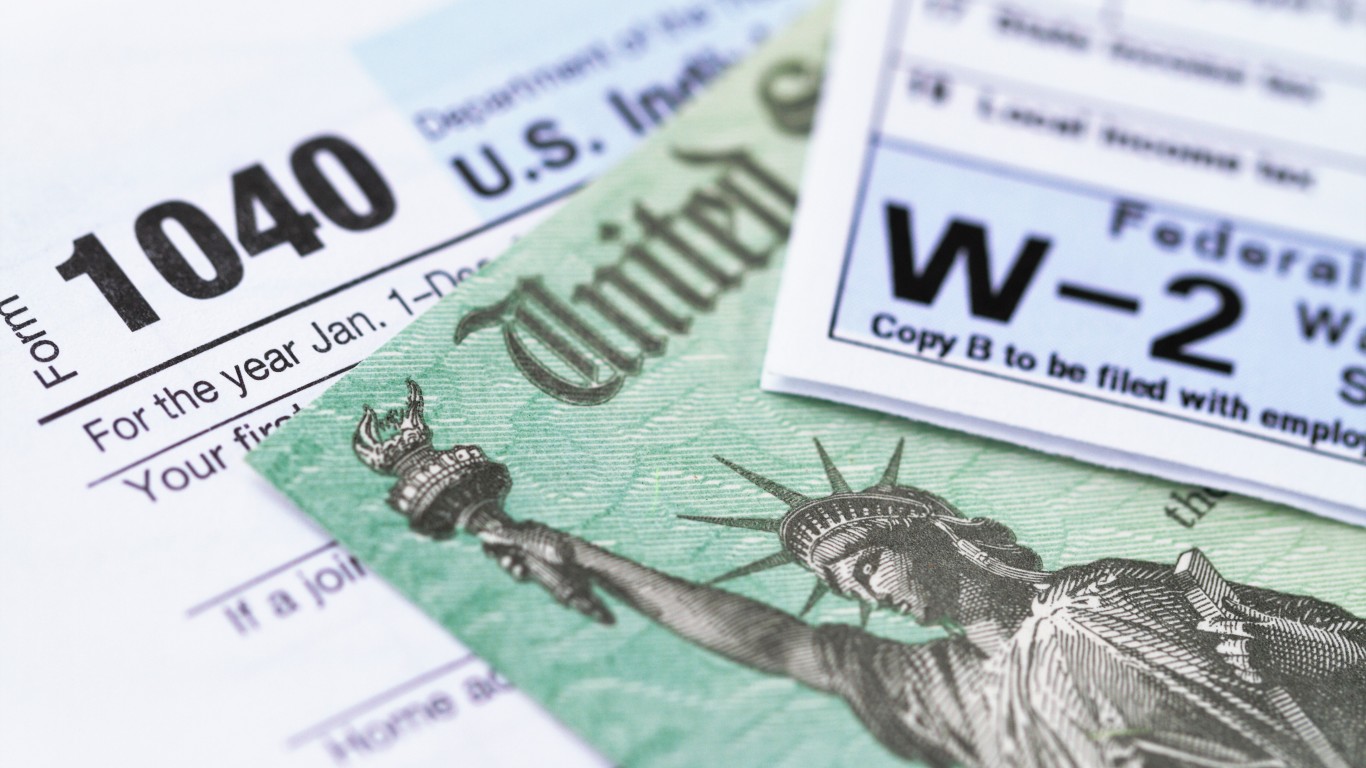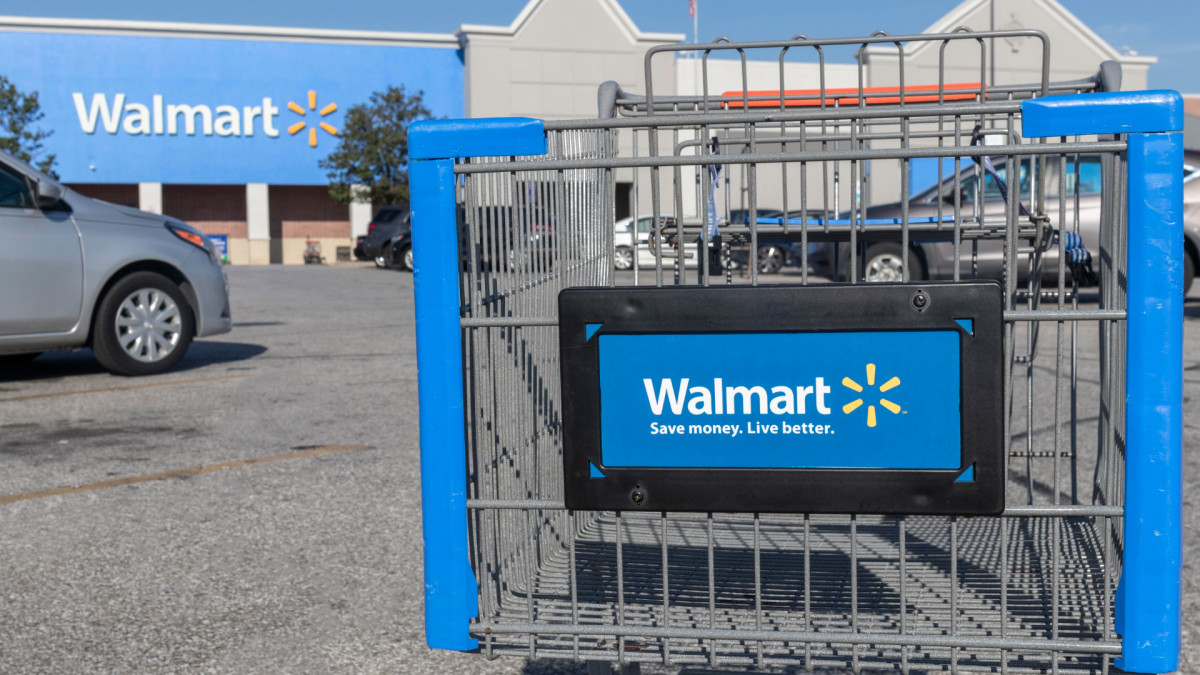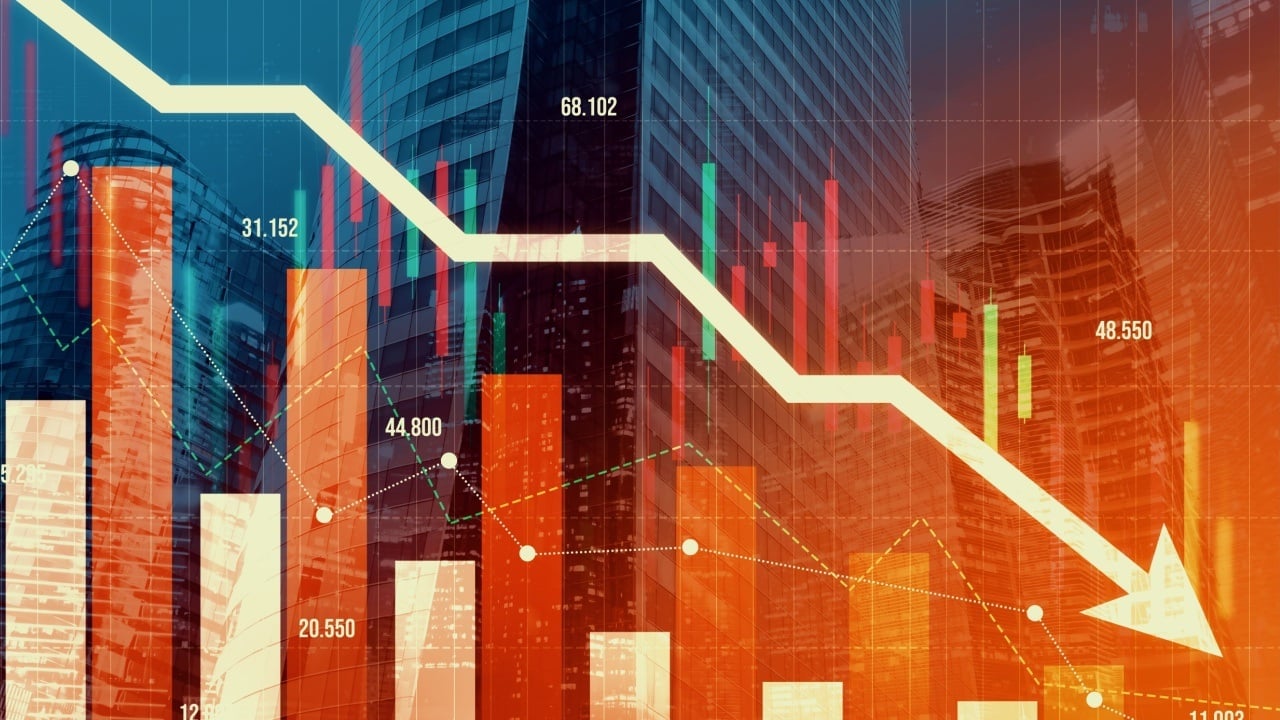This Is How the Rising National Debt Affects Future Generations
The National debt is trending upwards, but what does that mean? Understandably, the far-reaching effects of the rising national debt have a significant impact across the board when you consider the many facets of the United States economy. With that in mind, we’ll be taking a closer look at some of the particulars deeply impacted […] The post This Is How the Rising National Debt Affects Future Generations appeared first on 24/7 Wall St..

The National debt is trending upwards, but what does that mean? Understandably, the far-reaching effects of the rising national debt have a significant impact across the board when you consider the many facets of the United States economy. With that in mind, we’ll be taking a closer look at some of the particulars deeply impacted by the national debt and what that means for the future. This very well could be the reality for working Americans over the next few years.
Employment

The national debt itself doesn’t exist solely in a vacuum. It touches upon just about every facet of American life you can imagine. One area where concerns arise is employment. Simply put, if inflation is running higher, interest rates rise, and so forth, it has a profound impact on the employment of any American. Foreign investment in businesses is likely to stagnate with a national debt in the trillions. This is in part thanks to a loss of confidence in the buying power of the American dollar, but there are deeper issues at root.
Future Employment Impacts

The future for companies is bleak when compared to a stronger market in the United States. Many organizations rely upon things like loans for the sake of expansion, investment, and opening up the opportunity for additional jobs. This is a symbiotic relationship, as a faltering American economy saddled with debt has the unfortunate effect of harming the chances for employment for future generations. Further, there is the potential for economic crisis or crash, which would mean the bottom falling out of the market as a whole when it comes to job prospects. The current situation isn’t where things were in 2008, but the leading factors for a potential market disruption are in place.
Taxation

Currently taxation is fairly stable, at least when looking at higher-class earners. This is thanks in part to policies enacted during the 2016 Trump Administration, and the same is likely to continue with the 47th president taking a keener look at taxes for the wealthy in the coming months. However, a rising national debt does have a direct influence on how citizens are taxed. Ignoring obvious warning signs, like the interest rates, for a moment, another way for governments to generate capital in a short amount of time is through taxation. However, this sort of taxation is going to have a resounding impact on lower and middle class workers for generations to come.
The Impact on Middle Class Workers

Higher taxes result in far fewer economic opportunities for middle and lower class workers. Realistically, they’ve already got fewer financial resources at their disposal than someone in the highest tax brackets. However, this sort of rise in taxation is going to reduce the ability for things like buying a home, new cars, or even just spreading some of their earnings around on entertainment purchases. This subsequently has the negative effect of reducing stimulation and economic growth, as there is less money being placed into the economy from earnings and more being placed toward tax debt.
Government Benefits

The United States doesn’t run a comprehensive suite of social benefits like its European counterparts. That aside, there are assistance programs in place, like SNAP, Medicaid, Medicare, CHIP, and TANF, among others. The funding for these programs has to come from somewhere, and unfortunately, they might be the first on the chopping block when it comes to allocation of funds in the coming years when the federal and state budgets are passed.
Eroding Social Programs

Certain budgetary targets are prioritized when looking at the various programs and apparatuses in use by the United States government. Unfortunately, this often results in programs like Social Security receiving reduced funding in the coming years with the rising national debt climbing upward. For those with a comfortable retirement fund, a stable mortgage, and plenty of discretionary funds for the monthly grocery bill, this isn’t a concern. The impact on lower-class individuals, the infirm, and the elderly is going to be catastrophic, to say the least. Many families rely on the likes of SNAP to supplement their grocery bills every month, and that is going to be far harder to receive with reduced funding.
The Economy

The economy relies quite heavily on trust in the American dollar’s buying power to make an impact on the formation and development of private capital. When said national debt outstrips economic activity, you’re heading for a world of pain, sadly. This fairly basic economic concept is going to be difficult to manage over the next two decades, with some predictive modeling foreseeing the debt-to-GDP ratio skewing heavily in favor of debt.
Faltering Markets and Lost Trust

Historically, we’ve seen what a loss of confidence in a domestic market has on both American and foreign companies. When the trust in American purchasing power diminishes, so do the investments. Inevitably, this leads to a scenario where Americans struggle to find jobs, and companies are further struggling to stay afloat.
Reduction in Investment

Investment doesn’t solely refer to the likes of businesses. There are plenty of areas where the United States provides funding through grants and low-interest rate loans for the sake of research, infrastructure, and additional programs operated at the state level.
Loss of Opportunities for R&D, Infrastructure, and More

As you can imagine, a rising national debt looming over federal and state budgetary planning leads to a loss of these programs and financial opportunities. Funding for research into the arts, sciences, and healthcare has to come from somewhere. A faltering economy means fewer opportunities for these initiatives to get funded in the first place.
The Inability to Respond to Future Crises

Something just about any household understands is having a little cash set aside for rainy days. You never know when a car part will fail, a medical bill will come up, and so forth. The same applies to any country, but you need cash in the coffers to weather a crisis.
Recessions and Health Scares

Sadly, a higher national debt means that there is less flexibility and less ability to respond to a crisis if it does arise. The economy was in decent shape for the COVID-19 pandemic, but who’s to say the next health crisis doesn’t bring the country and market to their knees?
Fewer Economic Opportunities

Economic opportunities refer to any prospective means for the average citizen, business, and so forth to stimulate the economy. We saw a rising national debt and faltering market’s impact during the 2008 recession and what that meant for the like of purchasing new cars, houses, and other investments for the average person.
Interest Rates, Inflation, and More

The average person is a lot more likely to invest in a home when interest rates are lower, as the markets favor a buyer. We’re on track to see those soar, and subsequently, the building of equity for a household is going to be much more difficult to attain. Further, when you consider rising housing costs, inflation, and other external factors, that same family is getting a lot less house for their money.
The post This Is How the Rising National Debt Affects Future Generations appeared first on 24/7 Wall St..




























































































































































